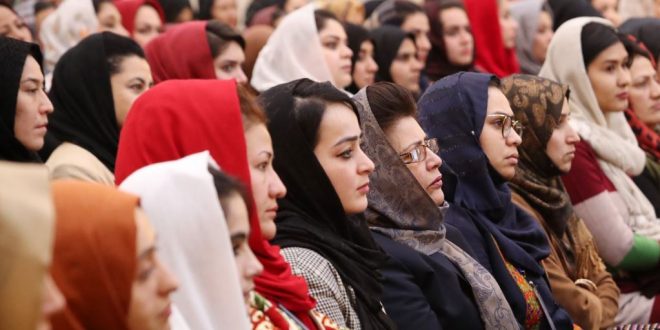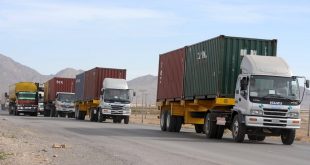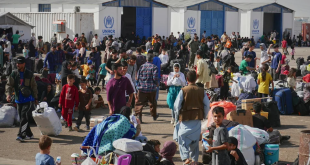By Dr. Matin Royeen
Introduction: Almost fifty percent of the Afghan population is females. The Afghan culture is primarily a patriarchal society where males play a dominant role in decision making, leadership positions and enjoy a higher status and opportunities in the country. Sadly, during the past forty-two years of violence and protracted conflict, the women’s suffering has been beyond description. In the past twenty years, some positive changes in the areas of education, employment, and human rights have taken place for some women in the country. A great deal of more work needs to be done in order to improve the quality of life for Afghan women in the cities and rural areas. Unfortunately, some international media sources still consider Afghanistan to be one of the most challenging places for women to live. The current peace discussions between the Taliban and the Afghan delegation have created a window of opportunity and the Afghan women’s participation in peace-making and peace-building is imperative.
The United Nations Security Council Resolution 1325 on Women, Peace and Security, adopted on October 31, 2000, affirms the critical role women play in conflict prevention/resolution peace negotiations, mediation and peacekeeping/building during the post-conflict reconstruction. This Landmark resolution emphasizes women’s perspectives in all United Nations peace and security affairs. Also, it calls on all parties to the conflict to take special measures towards the prevention of gender-based abuses and protect girls and women during the armed conflict tensions.
The Network of Women Mediators in Africa: According to Irene Limo, an inclusive approach to conflict resolution is very important, and integrating a gender perspective into the peace and security process has not been adequate. The low level of African women participation in mediation triggered the 1994 Kampala Action Plan on Women and Peace. It recommended creating a mechanism to facilitate the involvement of African women in the prevention, management and resolution of conflict at high levels. Since 1994, African women have been involved in the peace process in the Democratic Republic of Congo, Rwanda, Burundi, Kenya, and Liberia.
There is a greater need to utilize women’s talents in mediation, negotiations, peace observers and signatories to the peace agreements. Some of the challenges women facing in Africa can be applicable to Afghanistan;
Traditionally, the formal peace processes are dominated by males while women are only viewed as war victims,
Lack of access for women to gain the necessary knowledge and expertise. Women lack sufficient training and skills.
Lack of adequate support and funding to support peace processes.
Restricted opportunities for women to only engage in grass root levels instead of participating in high-level mediation.
Patriarchy still rules in some societies.
The Afghan Women’s Contributions towards Peace and Reconciliation: The resilience of Afghan women in facing trauma, managing crisis from different spheres of life and trying to maintain their own sanity in order to provide the necessary support and protection of loved ones have been incredible. Facing all this adversity, the Afghan women have succeeded to turn pain into perseverance, suffering to survival, trauma to transformation and victimhood to victory towards hope and peace. They have been great role models and unassuming leaders navigating the ship of destiny behind the invisible windows without receiving the proper recognition and reward. Our mothers, sisters and daughters in Afghanistan deserve a life of dignity, human rights and the cultural respect afforded to them by the ancient Afghan traditions. The Afghan women’s contributions towards peace include:
Their active participation and mediation are crucial for lasting peace.
They can serve as leaders towards social cohesion by helping heal the wounds of war by introducing empathy and forgiveness.
They can bring political legitimacy to the peace process by organizing, mobilizing and harmonizing people representing diverse segments of the Afghan society.
They can serve as important partners in the economic recovery of Afghanistan.
The Afghan women can provide compassionate social care to those who have been traumatized by the scars of the violence.
The United Nations Assistance Mission in Afghanistan: In order to play a vital role in peace, mediation and reconciliation, the Afghan women need the assistance of UNAMA in the areas of strategic planning, knowledge building and skill training. It is my sincere hope that Ms. Deborah Lyons and the Special UN for peace in Afghanistan, Mr. Jean Arnault will deliver this gift to the Afghan women on behalf of peace.
Matin Royeen Ph.D is an Afghan American educator. He can be reached at [email protected]
 Afghanistan Times
Afghanistan Times




